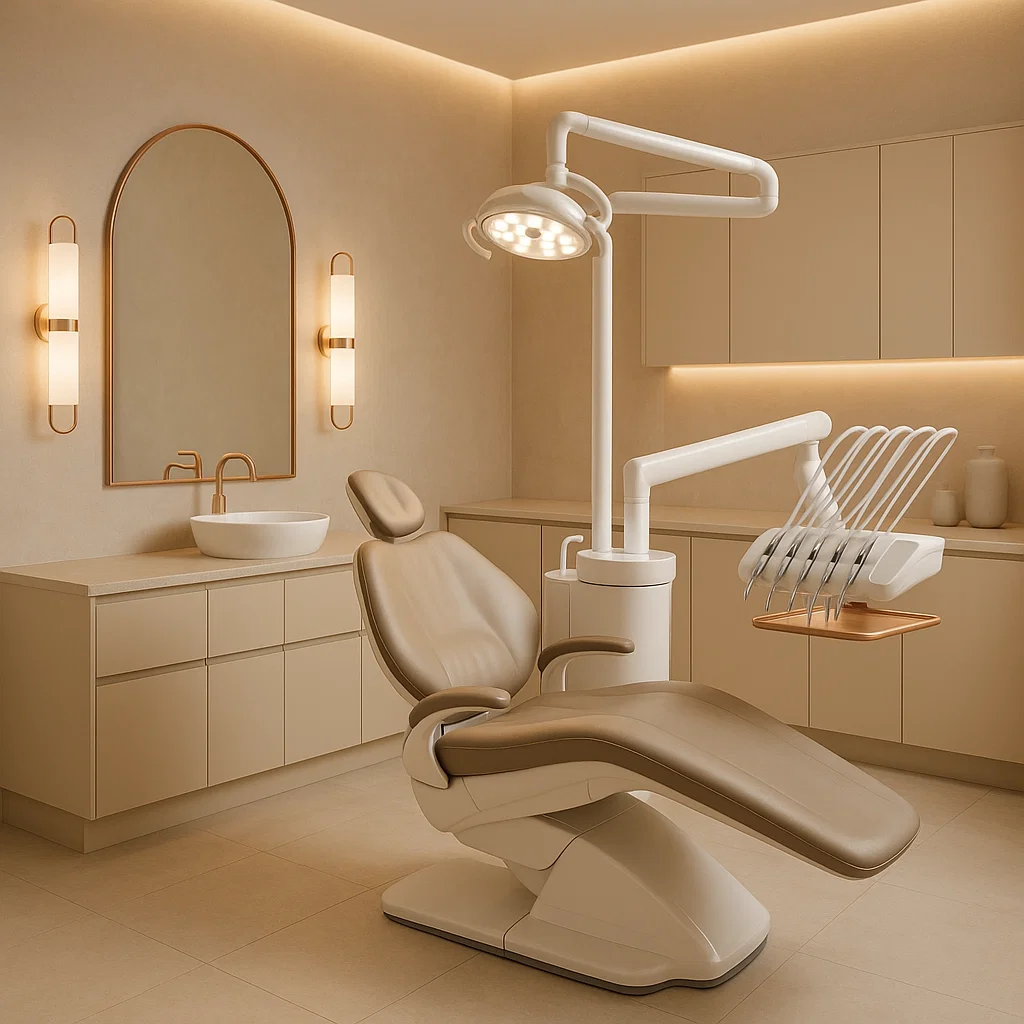
想象一下:现在已经是深夜了,你的收件箱里满是人,而且你的肩膀在办公桌上待了几个小时就开始疼了。你终于注销了,但你的下巴不但没有放松,反而感到紧张。也许你甚至发现自己握紧了。
压力并不总是伴随着思绪激动或失眠而显露出来。有时,它会隐藏在你的牙齿里。尽管最后期限可能会过去,但你对微笑施加的压力可能会造成持久且代价高昂的损失。
磨练(磨牙症)和握紧不只是坏习惯,它们是身体对压力的潜意识反应。以下是它们发生的原因:
磨练和握紧是你的身体 “排泄” 压力和紧张的方式。但是随着时间的推移,它们造成的伤害可能比你意识到的还要大。
当牙釉质(保护牙齿的玻璃盾牌)因磨损而磨损时,它不会重新长出来。
后果包括:
对于患有贴面或牙冠的患者,风险更高。磨削施加过大的压力,可能会使这些修复体碎裂或断裂。
握紧与运动无关,而是持续的重力。这种持续的压力:
最初的微微紧张感会慢慢改变你在夜间的咀嚼、说话甚至呼吸方式。
研磨和咬紧不仅会损坏牙釉质或牙龈,还能为未来大规模、昂贵的治疗奠定基础。
💡 简而言之:压力习惯不仅会影响你的笑容,还会使多年的投资化为乌有,迫使你进行复杂的牙科重建。
与非处方防护不同,牙医设计的睡衣是根据您的咬伤量身定制的,可保护牙釉质和修复体,同时减少下巴拉伤。可以把它当作笑容的护肤品——睡觉时的一层隐形防御层。
投资冷静可以为您的牙齿带来红利。将恢复性做法融入您的一周:
由于压力通常始于办公桌:
你的笑容不仅仅是牙釉质和牙龈——它反映了你的生活方式和幸福感。压力可能会以下巴紧张或无意识磨损的形式潜入,但通过积极的护理,您可以保护自己的牙齿健康、信心和长期投资。
为什么我晚上要磨牙?
压力、神经系统激活、咬合失衡和咖啡因等生活方式因素都起到了作用。
我怎么知道自己是在握紧还是在磨练?
早上头痛、下巴紧张、牙齿磨损、边缘碎裂或关节发出喀喀声,都是明显的征兆。
磨削会损坏牙科工作吗?
是的。牙冠、贴面、牙桥和植入物都有开裂、松动或失效的风险。
如果我不处理磨削会怎样?
牙齿可能会变平、缩短或骨折,通常会导致使用牙冠、植入物或牙桥进行昂贵的全口重建。
最好的预防措施是什么?
定制睡衣加上日常压力管理仪式——既能解决因果关系。
在KYT牙科服务,牙科不仅仅是解决问题,而是要预测问题。我们知道压力、姿势和生活方式的选择都会影响你的笑容。这就是为什么我们的方法就像是礼宾服务:故意、预防和持久。
无论您是需要定制的固定器、修复体保护指南,还是减轻下巴紧张的策略,我们的重点都是保护您的健康和长期投资。
✨ 因为保护牙齿不仅仅是避免损伤,而是要防止昂贵的重建,保持持久的笑容。





